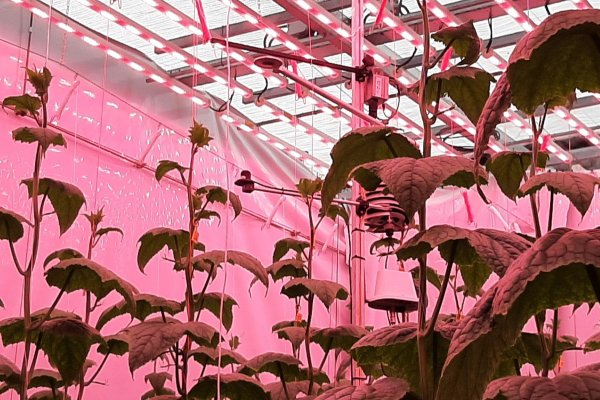In recent years, greenhouse horticulture has increasingly focused on data-driven or autonomous cultivation. Business operations are becoming increasingly complex and there is a need for data and decision support to make the right choices in cultivation. In recent years, the first steps towards autonomous cultivation have been taken in the (first) Agros project. Physiological knowledge has been developed to determine the important plant processes, sensors to measure these, and intelligent algorithms to control the greenhouse. These building blocks have been combined and applied in a successful validation test, in which three cucumber crops were controlled by cultivation experts, an AI algorithm, and a Digital Twin.
"In these crops, control was still based on manual measurements of crop characteristics," says Anja Dieleman, researcher at the Business Unit Greenhouse Horticulture of Wageningen University & Research, and project leader of Agros. "But an essential part of autonomous control of the greenhouse is the availability of continuous data from crop, substrate, and climate based on sensors. To do this, we still need to take steps to select and develop the right sensors".

To enable this, a consortium of companies submitted a follow-up to Agros to the Topsector Horticulture and Starting Materials. "Fortunately, that proposal was approved, so we can continue working on this topic in the project "Agros II: next steps towards an autonomous greenhouse", says Anja Dieleman. "One of the components of Agros II is the development of "soft sensors". These are combinations of multiple sensors, or of a sensor signal with a calculation. This allows the sensor data to be continuously checked to prevent errors. This will greatly increase the reliability of control based on sensor data and thus reduce the risks thereof. This is essential for the future application of autonomous cultivation". Anja Dieleman: "In addition, in this project, we will work on establishing relationships between climate, cultivation measures, and plant processes, to be able to use them in the control. And we will continue to develop AI algorithms to be able to control the greenhouse autonomously. All this to contribute to sustainable, energy-efficient, and profitable greenhouse horticulture".
In the project "Agros II: next steps towards an autonomous greenhouse", the business unit Greenhouse Horticulture of Wageningen University & Research collaborates with Nunhems/BASF Vegetable Seeds, Cultilène, Mechatronix, Stichting KIJK, Delphy, Greenport West Holland, Agrolux, Van der Hoeven Horticultural Projects, VDL ETG, and Source.ag, with funding from the Municipality of Lansingerland, the Hagelunie Innovation Fund and the Top Sector Horticulture and Starting Materials.
Source: Wageningen University & Research
